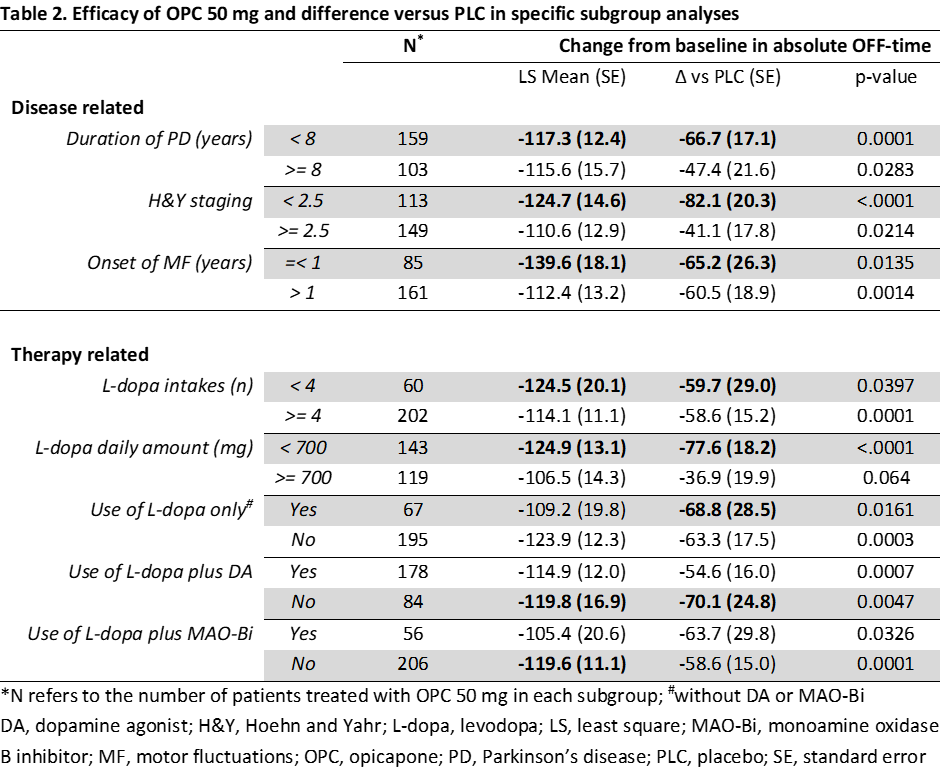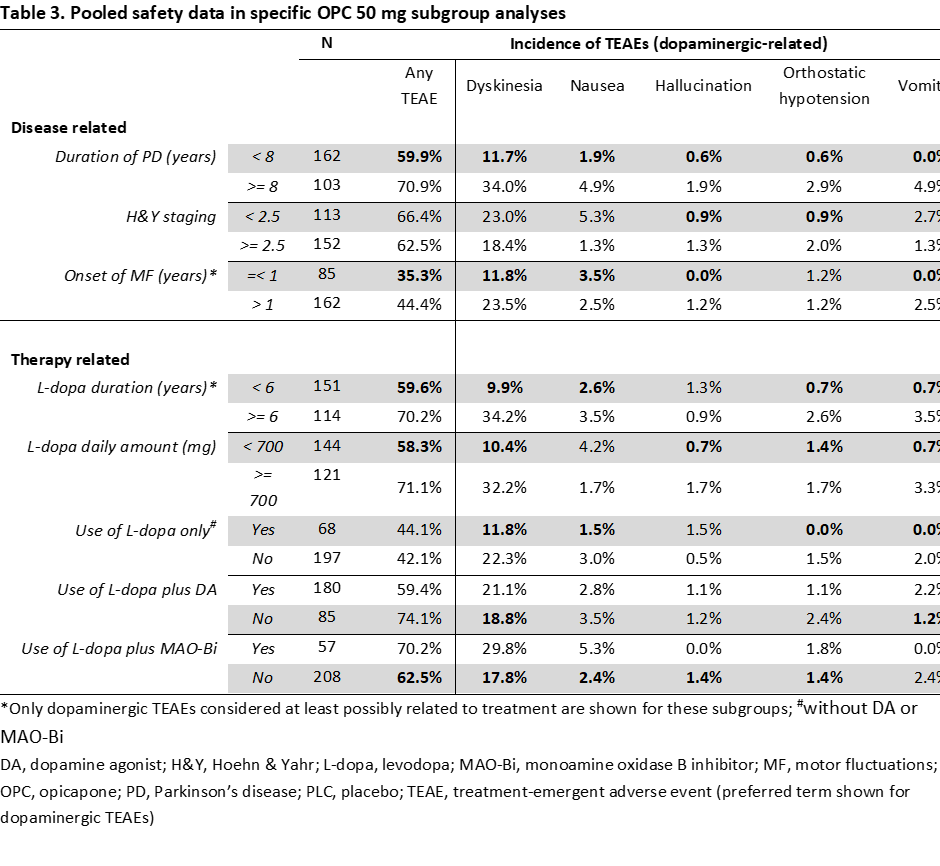Objective: To evaluate opicapone (OPC) in Parkinson’s disease (PD) patients with motor fluctuations according to disease- and therapy-related characteristics.
Background: OPC, a once-daily catechol-O-methyltransferase inhibitor, was shown to be effective for end-of-dose motor fluctuations in PD patients in two large multinational trials (BIPARK-I and II) [1, 2].
Method: Matching OPC 50 mg and placebo (PLC) data from BIPARK-I and II [1, 2] were combined. The studies had similar designs, eligibility criteria and methodologies. Primary efficacy endpoint was change from baseline in absolute OFF-time. Safety was assessed by evaluating the incidence of treatment-emergent adverse events (TEAEs). Subgroup analyses were performed to evaluate consistency and potential trends between subgroups based on disease- and therapy-related baseline characteristics (Tables 1 and 2). Efficacy subgroup analyses were performed using Analysis of Covariance. Safety assessments were analysed descriptively.
Results: Overall, 522 patients were randomised to PLC (n=257) and OPC 50 mg (n=265) (Table 1). OPC 50 mg was significantly more effective than PLC for all subgroup analyses (p<0.05), except for the subgroup of patients treated with >/=700 mg/day levodopa (p=0.064; Table 2). Moreover, OPC 50 mg demonstrated enhanced efficacy in patients who were lower in both subgroup thresholds of their disease course (disease duration, Hoehn and Yahr stage, and onset of MF) and levodopa adjunctive therapy (amount and number of intakes) (Table 2). There was also a trend towards a lower incidence of dopaminergic-related TEAEs in the same subgroups of patients (Table 3).
Conclusion: These findings indicate that there may be an added benefit from using OPC 50 mg as a first-line adjunctive therapy to levodopa and promptly in the motor fluctuations spectrum of patients’ disease course.
References: 1. Ferreira JJ, et al. Lancet Neurol. 2016;15:154–65. 2. Lees AJ, et al. JAMA Neurol. 2017;74:197–206.
To cite this abstract in AMA style:
G. Ebersbach, J. Ferreira, A. Antonini, A.T Santos, D. Magalhães, J.F Rocha, P. Soares-da-Silva. Opicapone’s added benefit as a first-line adjunctive therapy to levodopa and when used promptly in the motor fluctuations spectrum of Parkinson’s disease: a post-hoc analysis of BIPARK-I and II [abstract]. Mov Disord. 2020; 35 (suppl 1). https://www.mdsabstracts.org/abstract/opicapones-added-benefit-as-a-first-line-adjunctive-therapy-to-levodopa-and-when-used-promptly-in-the-motor-fluctuations-spectrum-of-parkinsons-disease-a-post-hoc-analysis-of-bipark/. Accessed April 2, 2025.« Back to MDS Virtual Congress 2020
MDS Abstracts - https://www.mdsabstracts.org/abstract/opicapones-added-benefit-as-a-first-line-adjunctive-therapy-to-levodopa-and-when-used-promptly-in-the-motor-fluctuations-spectrum-of-parkinsons-disease-a-post-hoc-analysis-of-bipark/



